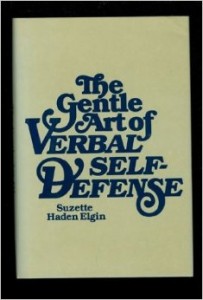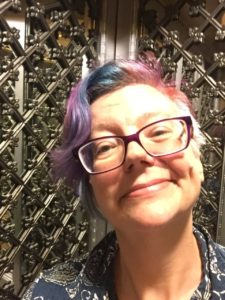
Charlotte Perkins Gilman was an American editor, writer, and lecturer whose short story “The Yellow Wallpaper,” about a woman’s descent into madness, is often revisited in college literature classes. She was a single mother who supported herself by writing — no small accomplishment today, let alone at the time she was doing so, the late 19th and early 20th centuries.
Herland is often treated as though it stands alone, but it’s actually the middle volume of a trilogy, preceded by Moving the Mountain in 1911 and followed by With Her in Ourland in 1916. The work was originally published as a serial in a magazine called The Forerunner that Gilman edited; it did not appear as a complete book until 1979, when Pantheon Books published it.
Herland is a utopian novel, in which three men, Vandyk (the narrator), Terry, and Jeff stumble across a civilization where the women reproduce asexually and there are no men. This turns out to lead not to a perfect civilization, but certainly one that seems more appealing than the one Gilman found herself in. Gilman uses the book as a device with which to explore constructed ideas of gender. It is an appealing society in many others; in others, it’s a bit cold and calculating. Girls who are overly rebellious or mouthy, for example, will not be allowed to reproduce.
One of the things that’s refreshing about the book is that it’s not written as though the lack of males is a deficit that warps society. Instead, it’s simply the way things are, and the Herlanders seem capable of getting along quite well without it.
Gilman was one of the important suffrage speakers of her time and a bit of a polymath. If you want to go further into her writing, I suggest a piece of nonfiction, her work on economics, Women and Economics: A Study of the Economic Relation Between Men and Women as a Factor in Social Evolution, which originally appeared in 1898.
You can find Herland online in its entirety at Project Gutenberg, along with much of Gilman’s other work.
#sfwapro





 I was on the road for most of September. That photo’s taken in the elevator of the Flatiron Building while I was in NYC, but other places I stayed included Dallas, Texas and Pocatello, Idaho. (More on that to come!) Here’s what I read in September, according to my notes, which always seem to leave out some stuff. Bolded indicates a particularly notable read.
I was on the road for most of September. That photo’s taken in the elevator of the Flatiron Building while I was in NYC, but other places I stayed included Dallas, Texas and Pocatello, Idaho. (More on that to come!) Here’s what I read in September, according to my notes, which always seem to leave out some stuff. Bolded indicates a particularly notable read.

